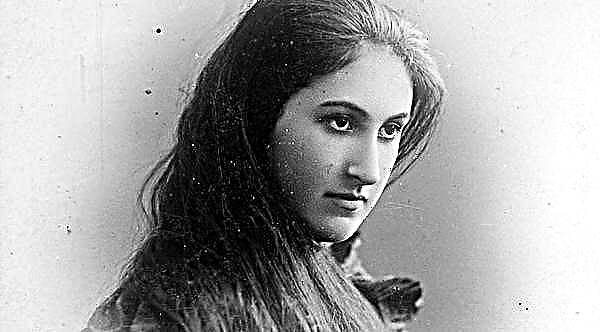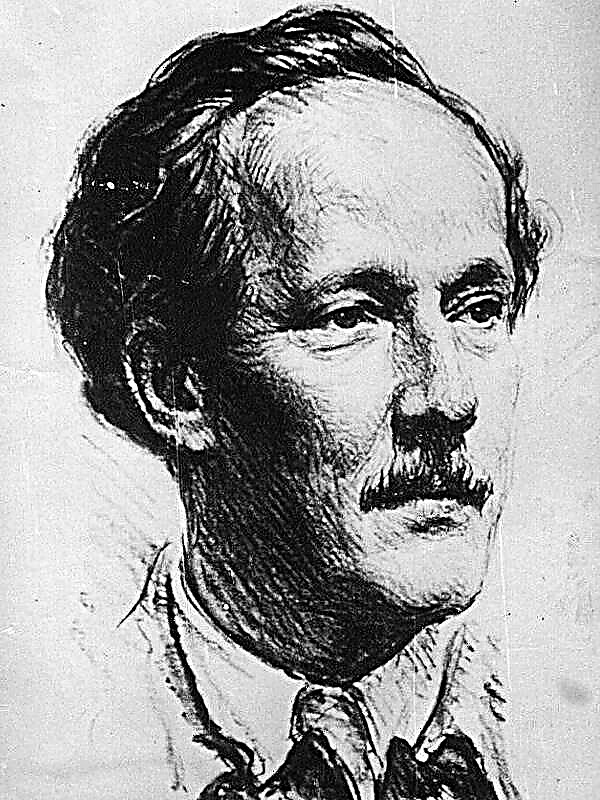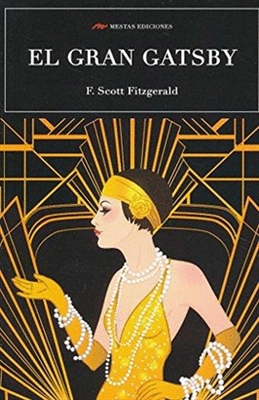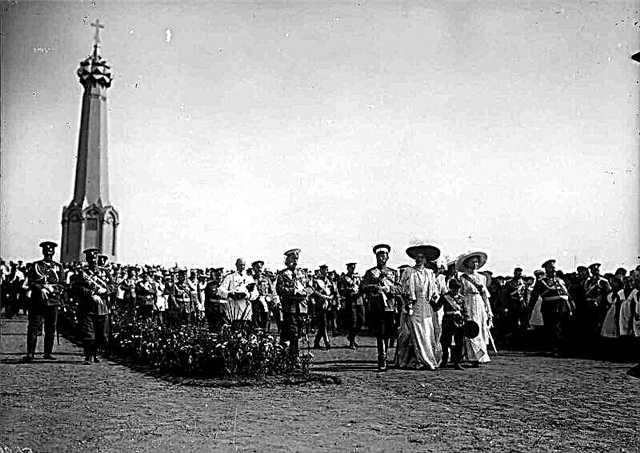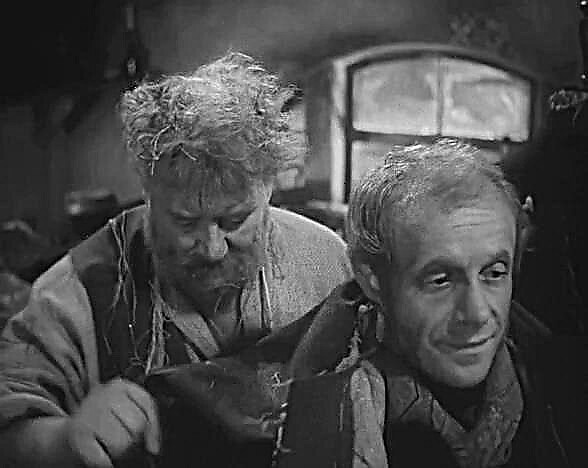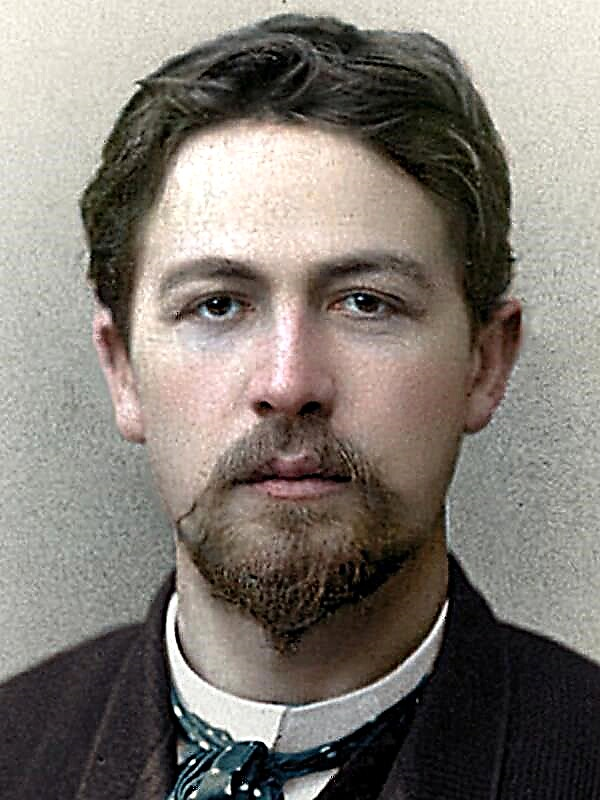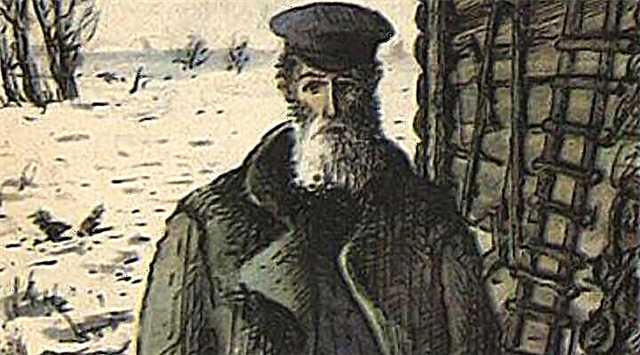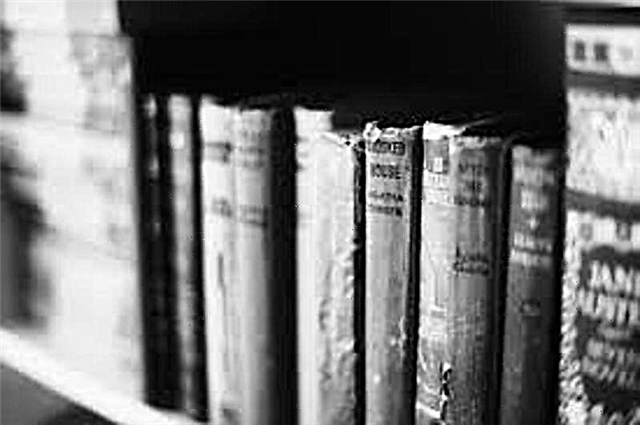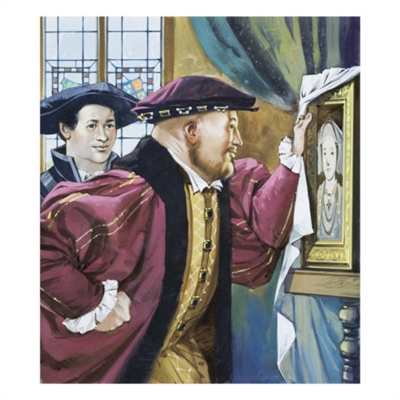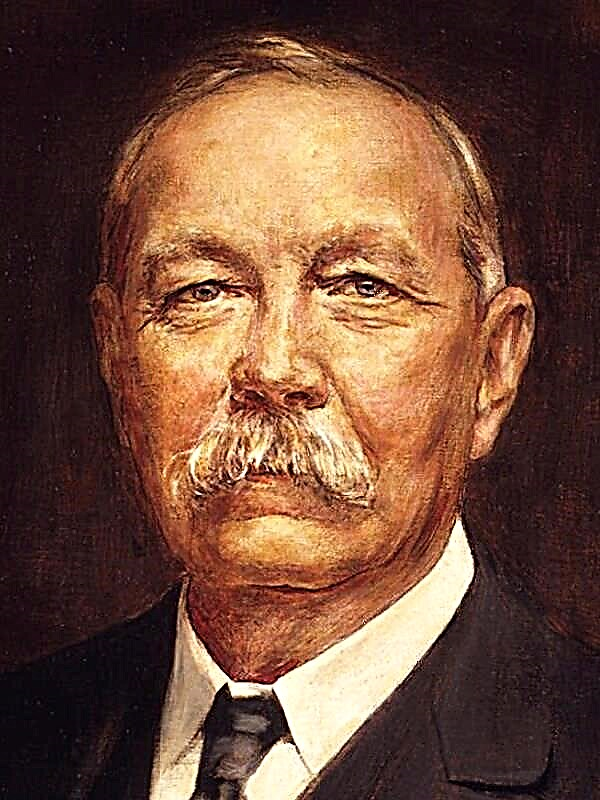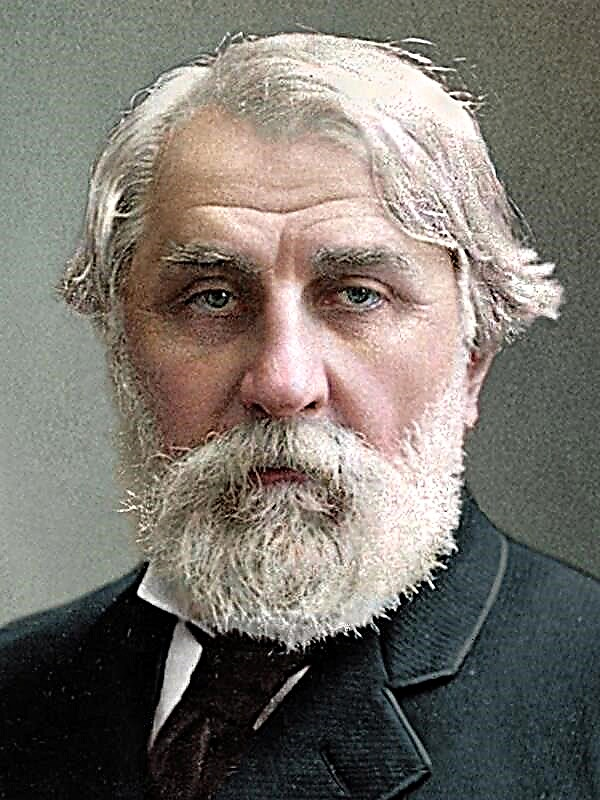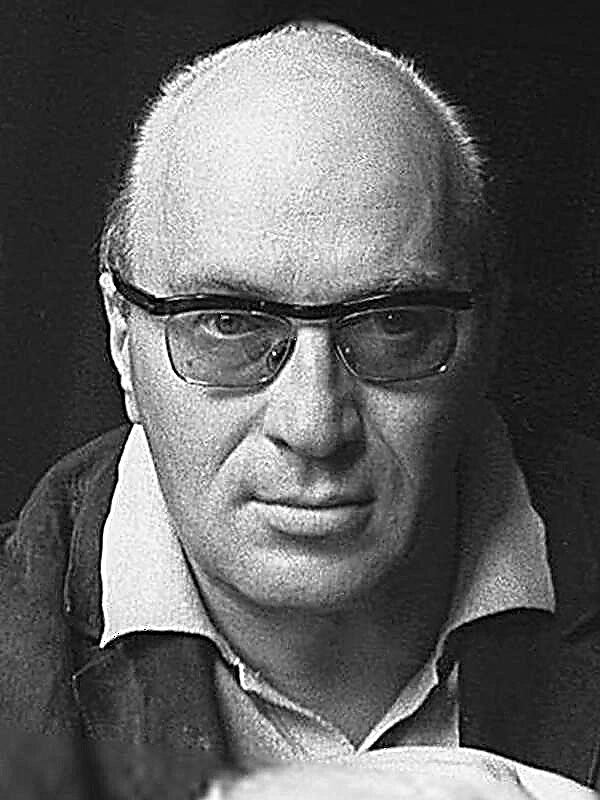Prince Nekhlyudov was nineteen years old when he, from the 3rd year of university, came to his village in summer vacations and alone spent the whole summer there. In the fall, he wrote to his aunt, Countess Beloretskaya, who, according to his ideas, was his best friend and the most brilliant woman in the world, who was going to leave the university to devote himself to life in the village. Wanting to put things in order, Nekhlyudov discovered that the main evil lies in the plight of men, and that this evil can only be corrected by labor and patience. The prince decided that his sacred and direct duty is to take care of the happiness of seven hundred of his peasants, and to be a zealous master, you do not need a diploma and ranks. Nekhlyudov also asked not to show letters to his brother Vasya, and if his brother Vanya does not approve this intention, he will understand it.
The countess answered him that the letter had proved nothing, except that the prince had a beautiful heart. However, in order to be a good host, you need to be a cold and strict person than he will hardly ever be, although he tries to pretend to be so. Such plans are just childish. The prince always wanted to seem original, but this originality is nothing but excessive pride. The poverty of several peasants is a necessary evil, or an evil that can be helped by not forgetting all their duties to society, to their relatives and to themselves.
The young man, having received this letter, thought about it for a long time and finally, deciding that a brilliant woman could be mistaken, he submitted his letter of resignation from the university and remained in the village forever.
The young landowner compiled the rules of action for his household, and his whole life was distributed by hours, days and months. Sunday was set to receive the petitioners, to go around the households of the poor peasants and to give them help with the consent of the peace, which met every Sunday evening. More than a year has passed in such classes, and the young man was no longer completely new to either practical or theoretical knowledge of the economy.
On a clear June Sunday, the lord went to the village, located on both sides of the highway. Nekhlyudov was a tall, slender young man with large, thick, curly dark blond hair, with a bright shine in black eyes, fresh cheeks and ruddy lips, over which the first fluff of youth was just showing. In all his movements and his gait, strength, energy and good-natured self-satisfaction of youth were noticeable. The peasant people were returning from the church in motley crowds, bowing low to the master and going around him.
Nekhlyudov took out a notebook: "Ivan Churisyonok - asked for bipods," he read. Churisenka’s home was a half-rotten log house, bent to one side and rooted to the ground. The house and courtyard were once covered under one uneven roof, but now it is only on the jam that rotting straw is hanging thickly; at the top, rafters were visible in places.
- Is Ivan at home? - asked Nekhlyudov.
“At home, breadwinner,” the little old woman answered, in a tattered checkered pane.
When Nekhludoff, having greeted her, walked through the passageway to a cramped courtyard, the old woman propped her hand on her hand, went to the door and, without taking her eyes off the master, quietly began to shake her head. The yard is poor and dirty. Churisyonok with an ax broke out the wattle fence that was crushed by the roof.
Ivan Churis was a man of about fifty, below normal height. The features of his tanned oblong face, surrounded by a dark blond with a gray beard and the same thick hair, were beautiful and expressive. His dark blue half-closed eyes looked clever and good-naturedly carefree. A small regular mouth, sharply indicated from under a light brown rare mustache, when he smiled, expressed calm self-confidence and somewhat mocking indifference to everything around him.From the roughness of the skin, deep wrinkles, sharply marked veins on the neck, face and hands, from the unnatural stoop and crooked, curved position of the legs, it was evident that his whole life was overworked, too hard work. His clothes consisted of white side-by-side shirts, with patches on his lap, and the same dirty shirt spreading on his back and hands. The shirt was lowly belted with a ribbon with a copper key hanging on it.
“Here came your household to visit,” Nekhlyudov said with childish friendliness and shyness. - Show me what the plows you asked for at the gathering.
- Yes, I wanted to back up the yard, it completely fell apart.
“Yes, you need a forest, not a bipod.”
“We need it, but there’s nowhere to take it: it’s not all the same to go to the manor’s yard!” If we give our brother the habit of bowing for all good to the noble court, what kind of peasants will we be?
- Well, you would have said at a gathering that you need to attach the whole yard. I’m glad to help you
“Many are pleased with your grace,” Churisyonok answered incredulously and without looking at the master. - At least four logs and boughs have come to me, so maybe I can handle it myself, and which is worthless forest, it’ll go to the hut for backups. We are waiting for that with the woman, who is about to crush someone, ”Churis said indifferently. - The other day, and then a roll from the ceiling on my woman’s back burned, so she lay dead until night.
“Why are you sick, but didn’t come to the hospital?” Said the young master with shrug, shrugging his shoulders.
- Yes, all the leisure time: on corvee, and at home, and the kids - all alone! The woman groaned. - Our lonely business ...
Nekhlyudov entered the hut. In the middle of this black, stinking six-arched hut, there was a large gap in the ceiling, and despite the fact that there were supports in two places, the ceiling was so bent that it seemed that it threatened to destroy it any minute.
It was annoying and painful for Nekhlyudov that Churis had brought himself to such a position and had not turned to him before, whereas since his arrival he had never refused the peasants and only sought to ensure that everyone would come to him directly for their needs. He even felt some anger at the peasant, angrily shrugged and frowned; but the sight of poverty that surrounded him, and among this poverty, Churis's calm and smug appearance turned his chagrin into some kind of sad, hopeless feeling.
“Have you seen the stone Gerard huts that I built on a new farm, with empty walls?” The huts are glorious, dry and warm, and from the fire are not so dangerous. I will probably give it to you for my price; will you ever give back, ”said the master with a smug smile that he couldn’t hold back at the thought of what beneficence was doing. “Well, don't you like that?” Nekhlyudov asked, noting that as soon as he spoke of relocation, Churis plunged into perfect stillness and, not smiling anymore, looked into the ground.
“No, Your Excellency, if you move us there, we are bad here, and there we will not be men forever.” Yes, and you can’t live there, your will!
Nekhlyudov began to prove to the peasant that resettlement, on the contrary, was very profitable for him, that wattle and barns would be built there, that the water there was good, but Churis’s dull silence embarrassed him, and for some reason he felt that he was speaking in the wrong way . Churisenok did not mind him; but when the lord was silent, he smiled slightly and noticed that it would be best to place the old yard dwellers and Alyosha the fool on this farm so that they would watch the bread there.
- And, Father, Your Excellency! Churis answered vigorously, as if frightened so that the master wouldn’t make a final decision, “the place here is fun in the world: the road, and the pond to you, and our whole establishment are peasant, here you are from the start, and the winds are what my parents planted ; and our grandfather and father here gave their soul to God, and if only I could end my century here, Your Excellency, I ask nothing more.If your mercy be corrected, we will remain much pleased with your mercy; but no, we’ll somehow survive in our old age.
When Nekhlyudov sat down again on the bench and there was silence in the hut, interrupted only by the whimper of a woman wiping her tears with the sleeve of a shirt, the young landowner understood what it meant for Churis and his wife a collapsing hut, a collapsed well with a dirty puddle, rotting stubs, sheds and crackles seen in front of a crooked window - and he felt something hard, sad and something ashamed.
- You come today to a gathering; I will talk to the world about your request; if he will award you a hut to give, so good, but now I already have no forest. I sincerely wish to help you; but if you do not want to relocate, then it’s not my business, but the things of the world.
“Many are pleased with your mercy,” answered the embarrassed Churis. “If you please thank the fishing line in the yard, we will get better.” - What is the world? It’s a well-known affair ... I’ll come. Why not come? Only I won’t ask the world.
The young landowner, apparently, wanted to ask the owners for something else; he did not get up from the bench and hesitantly glanced at Churis, now at the empty, heated stove.
“Well, have you had dinner yet?” He finally asked.
“Today, fasting is hungry, Your Excellency.”
Nekhlyudov had long known, not by rumor, not by faith in the words of others, but in fact, all that extreme degree of poverty in which his peasants were; but this whole reality was so inconsistent with all his upbringing, mentality and way of life, that he forgot the truth against his will, and whenever he, as now, vividly, reminded him reminiscent of him, his heart became unbearably heavy and sad as if the memory of some accomplished, unredeemed crime tormented him.
“Why are you so poor?” He said, involuntarily expressing his thought.
“But what should we be, Father, Your Excellency, if not the poor?” Our land is what: clay, knolls, and even then, read from cholera, read, it won’t give birth to bread. My old woman is sick, that every year, the girls gives birth: after all, everyone needs to be fed. Here is one toil, and seven souls at home. Here’s my help here, ”continued Churis, pointing to a white-headed boy of about seven, with a huge belly, who at that time timidly entered the hut and, staring at the surprised eyes at the master, with both hands held on to Churis’s shirt.
- Only your mercy will be dismissed about the school: otherwise the Zemsky came the other day, too, he says, and your excellency demands it at the school. After all, what is his mind, your excellency? He is still young, does not understand anything.
- No, your boy can already understand, it's time for him to learn. After all, I’m saying for your good. You yourself judge how he grows up with you, he will become a master, let him know and read and read - after all, everything at your place with God's help will do better, ”said Nekhlyudov, trying to express himself as clearly as possible and at the same time blushing for some reason and hesitating.
“It is indisputable, Your Excellency, - you don’t want us a damn, but there is nobody to stay at home: the woman and I on the corvee — well, and he, though small, helps. Whatever it is, it’s all a man, - and Churisyonok with a smile took the boy’s nose with his thick fingers and blew his nose.
“Yes, I also wanted to tell you,” said Nekhlyudov, “why haven’t you removed the manure?”
“What manure I have, Father, Your Excellency!” And there’s nothing to carry. What is my cattle? a mare and a foal, but he gave the heifer out of the calves in the fall to the janitor - that’s all my cattle. Yes, and cattle in the yard does not come to ours. Here the sixth year does not live.
“Well, brother, so that you don’t say that you don’t have cattle because you don’t have feed, but you don’t have cattle because you don’t have cattle, here’s a cow for you,” said Nekhlyudov, blushing and taking out a crumpled bundle of bank notes and taking it apart her, - buy yourself a cow for my happiness, and take food from the threshing floor - I will order.
“Many are pleased with your mercy,” Churis said with his ordinary, slightly mocking smile.
The young master was embarrassed; he hastily got up from the bench, went into the canopy and called for Churis. The sight of the man to whom he had done good was so pleasant that he did not want to part with him soon.
“I'm glad to help you,” he said, stopping at the well, “you can help, because, I know, you're not lazy.” You will work - and I will help; with God's help, and you will recover.
“It’s not something to recover, but just not to go broke, Your Excellency,” Churis said, suddenly taking a stern expression on his face, as if very dissatisfied with the assumption of the gentleman that he could recover. - They lived at the dad with the brothers, did not see any needs; but how he died and how they dispersed, everything got worse and worse. All loneliness!
Again Nekhlyudov experienced a feeling similar to shame or remorse. He raised his hat and went on.
“Yuhvanka-the Wise wants to sell a horse” - Yuhvankina's hut was carefully covered with straw from the lord's barn and cut down from fresh aspen forest (also from the lord's order). The Sentsa and the cold hut were also serviceable; but the general view of contentment was violated by a cage with an unfinished fence and an open canopy, visible from behind it.
On the other hand came two peasant women with a full tub. One of them was a wife, the other mother of Yuhvanka-the Wise. The first was a thick, ruddy woman. She wore a clean shirt sewn on the sleeves and collar, a new pane, beads and an embroidered nifty little kitty. The slight tension visible in her red face, in the bend of her back and the measured movement of her arms and legs, showed her extraordinary health and masculine strength.
Yukhvankin's mother, who carried the other end of the water carrier, was, on the contrary, one of those old women who seemed to have reached the last limit of old age. Her bony skeleton was bent; both her hands, with twisted fingers, were of some kind of brown color and, it seemed, could not be unbent; the drooping head bore the most ugly traces of poverty and old age. From under the narrow forehead, pitted in all directions with deep wrinkles, two red eyes, lacking eyelashes, looked dimly into the ground. One yellow tooth emerged from beneath the upper sunken lip. The wrinkles on the lower part of the face and throat looked like some kind of bags that swayed with every movement. She was breathing heavily and hoarsely; but the bare, curved legs, although, it seemed, by force dragging along the ground, measuredly moved one after another.
The modest young landowner sternly but carefully looked at the ruddy woman, frowned and turned to the old woman.
- Is your son at home? The barium asked.
The old woman, bending her bent camp even more, bowed and wanted to say something, but, putting her hands to her mouth, coughed so hard that Nekhlyudov, without waiting, entered the hut. Juhvanka, sitting in the red corner on the bench, seeing the gentleman, rushed to the stove, as if he wanted to hide from him, hastily put something on the sidewalk and, twitching his mouth and eyes, cuddled near the wall, as if giving way to the master. Juhwanka was a fair-haired guy of about thirty years old, slender, with a young sharp beard, quite handsome if it weren’t for brown eyes that looked unpleasant from under his wrinkled eyebrows, and not for the lack of two front teeth, which immediately caught his eye because his lips were short and ceaselessly moving. He was wearing a festive shirt, striped trousers and heavy boots with wrinkled shafts.
The inside of the hut of Juhvanka was not as crowded and gloomy as the inside of the house of Churis, although it was just as stuffy in it, and also a peasant dress and utensils were spread out randomly. Two things here somehow strangely stopped attention: a small bent samovar and a black frame with a portrait of some general in a red uniform. Nekhlyudov, looking unfriendly at the samovar, at the portrait of the general and at the party, turned to the peasant.
“Hello, Epiphanes,” he said, looking into his eyes.
Epiphanes bowed, his eyes instantly circled the whole figure of the master, the hut, the floor and the ceiling, not stopping at anything.
“I went to you to find out why you need to sell a horse.” - The master said dryly, apparently repeating the questions he had prepared.
- A horse that, Vasya, is worthless ... If there was a kind animal, I would not sell it, Vasya.
- Come, show me your horses.
As long as Nekhlyudov went out the door, Juhvanka took out a pipe with a fee and threw it behind the stove.
In the courtyard, under a canopy, was a thin, gray filly, a two-month-old foal did not leave her skinny tail. In the middle of the courtyard, squinting and thoughtfully bowing his head, there was a bay of mere shanks, seemingly a good peasant horse.
“I want to sell Evtu-s, Vasyaso,” said Juhvanka, waving at the dozing Merenka and constantly blinking and jerking her lips. Nekhludoff asked to catch the meren, but Juhvanka, declaring the cattle awkward, did not budge. And only when Nekhlyudov screamed angrily, threw himself under a canopy, brought back dress and began to chase the horse, frightening it. The barin was tired of looking at this, he took the hair and went straight from the head to the horse and, suddenly grabbing it by the ears, bent it to the ground with such force that the hell would stagger and wheeze. When Nekhlyudov noticed that it was completely in vain to use such efforts, and looked at Juhvanka, who did not stop smiling, he came up with the most offensive thought in his summer that Juhvanka was laughing at him and considering him a child. He blushed, opened the horse's mouth, looked in his teeth: the horse is young.
“You are a liar and a scoundrel!” - said Nekhlyudov, panting from angry tears. He was silent, so as not to be disgraced, burst into tears at the peasant. Juhwanka, too, was silent and with the air of a man who was now crying, and jerked his head slightly. “Well, what are you going to plow on when you sell this horse?” And most importantly, why are you lying? Why do you need money?
- There is nothing netti bread, Vasyaso, and it’s necessary to give debts to peasants, Vasyaso.
- Do not dare to sell horses and think!
“What will our life be like?” - answered Juhvanka completely to the side, and suddenly throwing a bold look directly at the master’s face: - So, you must die from hunger.
- Look, brother! Cried Nekhlyudov, “I won’t hold such men as you.” You sit at home and smoke a pipe, not work; you don’t give a piece of bread to your mother, who gave you the whole household, you let her beat her and bring her to the point that she came to complain to me.
“Have mercy, Yours, I don’t know what kind of pipes these are,” answered Juhvanka confusedly, who was mainly offended by the charge of smoking the pipe.
“Listen, Epifan,” Nekhlyudov said in a childish, meek voice, trying to hide his excitement, “If you want to be a good guy, you have to change your life, leave bad habits, don't lie, don't get drunk, respect your mother.” Engage in farming, and not in order to steal a state forest and go to a tavern. If you need anything, then come to me, ask me directly and do not lie, then I will not refuse you.
“Have mercy, Vasya, we seem to understand your Syas!” - answered Juhvanka, smiling, as if fully understanding the whole charm of the master’s joke.
This smile and answer completely disappointed Nekhlyudov in the hope of touching a man and turning him on the right path. He sadly bowed his head and went out into the canopy. An old woman sat on the threshold and moaned loudly, as it seemed, in sympathy with the words of the master.
“Here’s for your bread,” Nekhlyudov said in her ear, putting the bank note in her hand, “just buy it yourself, and don’t give it to Juhvanka, otherwise he will drink it.”
The old woman grabbed her arm with a bony hand to get up, but Nekhlyudov was already on the other side of the street when she got up.
"Davydka White asked for bread and stakes." Having passed several courtyards, when turning into an alley, he met his clerk, Yakov Alpatych, who, having seen the master from afar, took off his oilcloth cap and, having pulled out a full-length scarf, began to wipe his thick, red face.
- Was at the Wise. Tell me, please, why did he become so? - said the master, continuing to walk forward along the street.“He is a complete scoundrel, a lazy person, a thief, a liar, his mother is tormenting and, apparently, such an inveterate scoundrel that he will never recover.” And his wife seems to be a mysterious woman. The old woman is worse than any beggar; there is nothing, but she is discharged, and so is he. What to do with it - I absolutely do not know.
Yakov was noticeably embarrassed when Nekhlyudov spoke about Yuhvanka’s wife.
“Well, if he let himself go like this, Your Excellency,” he began, “measures must be found.” He is definitely in poverty, like all lonely men, but he still observes himself somehow, not like the others. He is a smart, competent and honest man, it seems, a man. And the headman with my control went for three years, too, was not noticed. And as you dislike, it means that these measures are to be used, so I don’t know what we will do with it. It’s not suitable for soldiers again, because there are no two teeth. And what about the old woman, you deign to worry, then this is in vain. After all, this is generally in the peasantry, when the mother or father transferred the economy to his son, then the owner is the son and daughter-in-law, and the old woman must earn her bread by force of urine. Of course, they do not have those tender feelings, but in the peasantry this is generally the case. Well, she quarreled with her daughter-in-law, maybe she pushed her - it’s a woman’s business! Already you are so willing to take everything to heart. Home, please? - he asked.
- No, to Davydok the White, or the Goat ... how is he called?
“I’ll report it to you.” What he didn’t do, he doesn’t take anything: neither on himself nor on corvee, everything is like a deck falling through a stump. And after all, Davydka is a quiet man, and not stupid, and does not drink, but worse than another drunk. One thing that goes into the soldiers or the settlement, there is nothing more to do. So you do not need me, your excellency? - added the manager, noting that the master did not listen to him.
“No, go,” Nekhlyudov answered absentmindedly and headed for Davydok Bely.
Davydkina hut crookedly and lonely stood on the edge of the village. Tall weeds grew in the place where the courtyard once was. There was no one except a pig lying in the mud at the threshold near the hut.
Nekhlyudov knocked on the broken window: but no one answered him. He entered the open hut. A rooster and two chicken walked around the floor and benches. The six-huts hut was occupied by a furnace with a broken pipe, a weaving mill, which, despite the summer time, was not taken out, and a blackened table with a curved, cracked board.
Although it was dry in the yard, there was a muddy puddle on the threshold, formed from a leak in the roof. It was hard to think that this place was inhabited, however, Davydka Bely lived in this hut with his whole family. At the present moment, Davydka was fast asleep, huddled in the corner of the stove. Seeing no one in the hut, Nekhlyudov already wanted to go out, as a long sigh revealed the owner.
- Who's there? Come here!
It started stirring slowly on the stove, one big leg in a tattered bast shoe came down, then another, and finally the whole figure of Davydka Bely appeared. Slowly bending his head, he looked into the hut and, seeing the gentleman, began to turn a little faster, but still so quietly that Nekhlyudov managed to pass three times from the puddle to the weaving mill and back, and Davydka still got off the stove. Davydka White was really white: his hair, body, and his face were all extremely white. He was tall and very thick. Its thickness, however, was kind of soft, unhealthy. His pretty pretty face, with light blue calm eyes and a wide, broad beard, bore the imprint of soreness. There was no noticeable tan or blush on it; it was all of some kind of pale, yellowish color and as if everything had swam with fat or swollen. His hands were puffy, like the hands of people sick with water, and covered with thin white hair. He was so sleepy that he could not open his eyes at all and stand without staggering or yawning.
“Well, why are you not ashamed,” Nekhlyudov began, “in the middle of the day to sleep, when you need to build a yard, when you don’t have bread? ..
As soon as Davydka came to his senses from sleep and began to understand that the master was standing in front of him, he folded his hands under his stomach, lowered his head, tilting it a little to one side, and did not move. He seemed to want the master to stop talking, and as soon as possible nailed him, but left him as soon as possible. Noting that Davydka did not understand him, Nekhlyudov tried with various questions to get the peasant out of his humble patient silence.
“Why did you ask me for the forest when he has been lying with you for a month now, huh?” - Davydka stubbornly silent and did not move. “You have to work, brother.” Now you don’t have any bread - all from laziness. You ask me for bread. Whose bread will I give you?
“Lord's,” muttered Davydka, timidly and inquiringly raising his eyes.
“And the master’s from where?” They complain about you and the corvee — he worked the least, and you ask for the most bread. What is there to give you, but not to others?
At this time, the head of a peasant woman flashed past the window, and a minute later Davydkina's mother, a tall woman of about fifty, very fresh and lively, entered the hut. Her face pitted with rowans and wrinkles was ugly, but her straight, hard nose, pursed thin lips and quick gray eyes expressed intelligence and energy. The angularity of the shoulders, the flatness of the chest, the dryness of the hands and the development of muscles on her bare black legs indicated that she had long ceased to be a woman and was only a worker. She briskly entered the hut, closed the door and looked angrily at her son. Nekhlyudov wanted to tell her something, but she turned away from him and began to be baptized on a black wooden icon, then she straightened her dirty checkered shawl and bowed lowly to the master.
Seeing his mother, Davydka was noticeably embarrassed, bent his back a little and lower his neck even lower.
“Thank you, Arina,” answered Nekhlyudov. - Here I am now talking with your son about your household.
Arina, or, as peasants called her as girls, Arishka Burlak, without listening to it, began to speak so sharply and loudly that the whole hut was filled with the sound of her voice:
“Why, my father, why talk to him!” Bread bursts, and works from it, like from a deck. Only knows to lie on the stove. I myself ask: do you punish him for the sake of the Lord God, whether it’s one end to the soldiers! My urine was gone with him. He ruined me, an orphan! She squealed suddenly, waving her arms and approaching her son with a menacing gesture. - Your smooth muzzle is beguiling, God forgive me! (She scornfully and desperately turned away from him, spat and again turned to the master with the same animation and with tears in her eyes, continuing to wave her arms.) He froze me, scoundrel! The daughter-in-law was exhausted from work - and I will be the same. We took her last year from Baburin, well, the woman was young, fresh. As I recognized our work, well, I got over it. Yes, even in trouble the boy gave birth, there is no bread, and even the work is hasty, she has breasts and are dry. And as a child died, she howled, howled, and she herself ended. He decided it, beast! - again with a desperate rage she turned to her son ... - What I wanted to ask you, Your Excellency, please, the son of my son. I do not let God die, because he will not be a man for you. And there is a bride - Vasyutka Mikheykina.
“Doesn't she agree?”
“No, breadwinner.”
- I can not force; look for another: not with you, so with strangers; if only she went on her hunt. You cannot forcefully marry. And there is no such law, and this is a great sin.
- Uh, breadwinner! Yes, what kind of hunting will suit us, and what guy will give us the girl? One, they say, was starved to death by hunger, and mine will be the same. Who will consider us, if not you? - said Arina, bowing her head and with an expression of sad bewilderment spread her arms.
“You asked for bread, so I order you to let go,” said the master. And I can’t do anything else.
Nekhlyudov left in the canopy. Mother and son, bowing, went for the master.
“What will I do with him, father?” - continued Arina, referring to the master. - After all, the man is not bad, but he has become a villain to himself. Not otherwise than evil people ruined it. If you find a person, you can cure him.Should I go to Dunduk: he knows all sorts of words, and he knows the herbs, and removes damage, maybe he will heal him.
“Here it is, poverty and ignorance! The young master thought, sadly bowing his head and striding down the village. - What should I do with him? It is impossible to leave him in this position. Sent to a settlement or to soldiers? ” He thought about it with pleasure, but at the same time some vague consciousness told him something was not good. Suddenly a thought came to him, which greatly pleased him: “Take him into the courtyard,” he said to himself, “to observe him yourself, and meekness, and exhortations, to accustom him to work and correct him.”
Remembering that we still need to go to the rich man Dutlov, Nekhlyudov went to a high and spacious hut in the middle of the village. On the way, he encountered a tall woman of about forty.
- Will you come to us, father?
Entering the canopy after her, Nekhlyudov sat on the tub, took out and lit a cigarette.
“It’s better to sit here, talk,” he answered the invitation of the nurse to enter the hut. The nurse was still a fresh and beautiful woman. In her features, and especially in large black eyes, there was a great resemblance to the face of the master. She folded her arms under the curtain and, boldly looking at the master, began to speak with him:
- Well this, father, why do you deign to favor Dutlov?
- Yes, I want to start a business with him, but buy the forest together.
- It is known, father, Dutlovs are strong people, and there should be money.
“Does he have a lot of money?” Asked the master.
- Yes, there must be money. And the old man is a real master. And the guys are happy. As in the house there is a real head, then the way will be. Now the old man, Karp, wants to be the master of the house. Karp is a good man, and everything will not work out against the old man!
“Maybe Karp wants to take up land and groves?”
- Hardly, father. While the old man is alive, so he is in charge. And the old man is afraid of the master to announce his money. The hour is not equal and all the money will be decided ...
“Yes ...” said Nekhlyudov. blushing. - Goodbye, nurse.
- Farewell, Father, Your Excellency. Thank you very much.
"Nate home?" Thought Nekhlyudov, approaching the Dutlovs' gates and feeling some vague sadness and moral fatigue. But at this time, a new back gate opened, and a handsome, ruddy blond guy of about eighteen, in Yamskoy clothes, appeared, leading a trio of strong-legged shaggy horses.
“What, father of the house, Ilya?” - asked Nekhlyudov. “No, I can withstand the character, I’ll propose it to him, I will do everything that depends on me,” thought Nekhlyudov, going into the spacious yard of Dutlov. In the courtyard and under high awnings there were many carts, sledges, all peasant goods; doves cooed under wide, sturdy rafters. In one corner, Karp and Ignat were setting a new pillow under a large cart. All three sons of Dutlov were almost on one face. Smaller, Ilya, who met Nekhlyudov at the gate, was without a beard, smaller in stature, rougher and more elegant than his elders; the second, Ignat, was taller, blacker, had a beard with a wedge, and although he was also in boots, a Yamskoy shirt and a bright hat, he did not have that festive, carefree look, like a little brother. The eldest, Karp, was even taller, wore bast shoes, a gray caftan, had a rich red beard, and his appearance was not only serious, but almost gloomy.
- Command the priest to send, Your Excellency? He said, approaching the master and bowing slightly and awkwardly.
“I need to talk with you,” Nekhlyudov said, moving to the other side of the courtyard so that Ignat could not hear the conversation. The self-confidence and some pride, and what the nurse told him, so embarrassed the young gentleman that it was difficult for him to decide to talk about the alleged case. He felt as if guilty, and it seemed easier for him to speak with one brother so that the other would not hear.
- What, your brothers go to the post office?
- We drive mail in three triples, otherwise Ilyushka goes to the cab. We feed horses to extremes - and thank God.
- This is what I want to offer you: what do you want to do with the cabage, just to feed yourself, you better take the land from me, but start a large farm.
And Nekhlyudov, keen on his plan for a peasant farm, began to explain his assumption to the peasant.
“We are very pleased with your grace,” Karp said. - It’s better for a man to deal with land than to go with a whip. Yes, as long as the father is alive, well, I can think.
“Take me, I'll talk to him.”
A bent small figure of an old man with a shiny in the sun, an open gray head and bald head was visible near the door of a chopped, covered with fresh straw wheat. Hearing the creak of the gate, the old man looked around and, meekly and joyfully smiling, went to meet the master.
The beekeeper was so cozy, joyful, the figure of the old man was so simple-heartedly affectionate that Nekhlyudov instantly forgot the heavy impressions of the morning, and his beloved dream vividly presented itself to him. He already saw all his peasants as rich, good-natured as the old Dutlov, and everyone smiled kindly and joyfully at him, because they owed him their wealth and happiness alone.
“Could you order the net, Your Excellency?” Now the bee is angry, biting, ”said the old man. - The bee knows me, does not bite.
- So I do not need. And here I read in the book, - began Nekhlyudov, brushing aside the bee, which, clogging in his hair, buzzing under his ear, - that if the wax is standing right on the poles, then the bee swarms before. To do this, they make such beehives from boards ... from the crossbeams ... - Nekhlyudov was in pain: but for some kind of childish vanity he did not want to admit it, and, once again abandoning the net, he continued to tell the old man about the structure of the beehives about which he read in Maison Rustique [Farm]; but the bee stung him in the neck, and he strayed and hesitated in the midst of reasoning.
They did not bite the old man, but Nekhlyudov could hardly resist the urge to run out; in three places the bees stung him and hummed from all sides.
“Here, Your Excellency, I wanted to ask your favor,” the old man continued, “about Osip, the nurse’s husband.” That’s what he doesn’t let his bee on my young for a year, ”said the old man, not noticing the gentleman’s grimace.
“Well, after, now ...” said Nekhlyudov, and, no longer able to endure, waving both hands away, he ran out to the gate.
“To rub the earth: it is nothing,” said the old man, going out into the yard after the master. The barin rubbed the ground where he was stung, blushing, quickly looked back at Karp and Ignat, who did not look at him, and frowned angrily.
“What about the guys I wanted to ask, Your Excellency,” said the old man, as if, or indeed, not noticing the formidable form of the master. - If your mercy would have been, let the children go to the quitrent, so Ilyushka and Ignat would go into the cab for the whole summer.
“That's what I wanted to talk about with you,” said the master, addressing the old man and wanting the polite to bring him into conversation about the farm. - It does not matter to engage in honest craft, but it seems to me that one could find another occupation; and this work is such that the young fellow travels everywhere, he can be spoiled, ”he added, repeating the words of Karp. - You never know what else you could do at home: both land and meadows ...
- And what, your excellency, will you regret the hut? The old man said, bowing low and blinking at his son. Ilyushka trotted into the hut, and after him, along with the old man, Nekhlyudov entered.
The hut was white (with a pipe), spacious, with batons and bunks. One young, thin, with an oblong, pensive face woman, Ilya's wife, sat on a bunk and shook her unsteady foot; another, thick, red-cheeked woman, the mistress of Carp, crushed onions in a wooden cup in front of the stove. A puffy pregnant woman, closing her sleeve, stood near the stove. In the hut, except for the heat of the sun, it was hot from the oven and smelled of freshly baked bread. The blond heads of two boys and girls, climbing there in anticipation of dinner, looked down curiously from the coast.Nekhlyudov was glad to see this contentment and at the same time was somehow ashamed of the women and children who all looked at him. Blushing, he sat down on the bench.
“Well then, father Mitriy Mikolaich, what about the guys you want?” - said the old man.
“Yes, I would advise you not to let them go at all, but to find a job for them here,” suddenly, bracing himself, Nekhlyudov said. “I, you know, what you came up with: buy with me in half a grove in a state forest and even land ...”
A meek smile suddenly disappeared on the old man's face.
“Well, if there was money, why not buy it,” he said.
“But you have money, why should they lie like that?” - insisted Nekhlyudov.
The old man suddenly became very excited; his eyes flashed, his shoulders began to twitch.
“Mauger, evil people said about me,” he spoke in a trembling voice, “so, believe God, besides fifteen rubles, that Ilyushka brought it, and there is nothing.”
- Well, good, good! - said the master, rising from the bench. - Farewell, owners.
"Oh my God! Oh my God! - thought Nekhlyudov, heading for the house, - were there really nonsense about all my dreams about the purpose and responsibilities of my life? Why is it hard, sad, as if I’m dissatisfied with myself? ” And with an extraordinary vivacity he was carried over by imagination a year ago.
Early in the morning, without purpose, he went out into the garden, from there into the forest, and wandered alone for a long time, suffering from an excess of some kind of feeling and not finding expression to him. He imagined a woman, but some higher feeling said the wrong thing and made him look for something else. That, it seemed, the laws of being were revealed to him, but again the highest feeling said the wrong thing. He lay down under a tree and began to look at the transparent morning clouds, suddenly, for no reason, tears came to his eyes. The thought came that love and good are truth and happiness. The highest feeling has not said the wrong thing. “So, I have to do good in order to be happy,” he thought, and his whole future was no longer abstract, but in the form of a landowner's life was vividly drawn before him.
He doesn’t need to look for a calling, he has a direct duty - peasants ... “I have to save them from poverty, educate, fix vices, make them love good ... And for all this I, who will do it for my own happiness, I will enjoy gratitude their". And the young imagination presented him with an even more charming future: he, his wife and old aunt live in complete harmony ...
“Where are these dreams? - the young man thought now, approaching the house. “It has been more than a year now that I have been looking for happiness on this road, and what have I found?” The aunt wrote the truth that it’s easier to find happiness yourself than to give it to others. Have my men become richer? Are they formed or developed morally? Not at all. They did not feel better, but every day it gets harder and harder for me. I spend the best years of my life for nothing. ” He remembered that there was no money left, that from day to day it was necessary to expect an inventory of the estate. And suddenly his Moscow student room seemed to him just as vividly, talking with his beloved sixteen-year-old friend, when they talked about the future awaiting them. Then the future was full of pleasures, diverse activities, brilliance, successes and, of course, led them both to a better, as it seemed then, good in the world - to glory. "He is already following this road, and I ..."
But he was already approaching the porch of the house, near which stood a man of ten peasants and courtyards, waiting for the master. Nekhlyudov listened to all the requests and complaints and, advising one, analyzing the others and promising the third, experiencing some mixed feeling of fatigue, shame, powerlessness and remorse, went to his room.
In the small room occupied by Nekhlyudov there was an old leather sofa, several of the same chairs; a spread out old boston table with papers on it, and an old English grand piano. Between the windows hung a large mirror in an old gilded frame. On the floor, near the table, were piles of papers, books and bills.In general, the whole room had a spineless and erratic appearance; and this living disorder was a sharp contrast with the prim primitive decoration of the other rooms of the big house. Entering the room, Nekhlyudov angrily threw his hat on the table and sat on the chair that stood in front of the piano.
“Will you have breakfast, Your Excellency?” Said the tall, shriveled old woman who had come in at that time, in a cap, a large scarf, and a chintz dress.
“No, I don’t feel like it, nanny,” he said, and thought again.
- Oh, Father Dmitry Nikolayevich, what are you missing? One day alone. If only we went to the city or to the neighbors. I wish I went to my aunt: she wrote the truth ...
Nekhlyudov was getting sadder and sadder. With his right hand, he began to play the piano. Then he moved closer and began to play two hands. The chords that he took were not quite correct, but he supplemented the missing with imagination.
It seemed to him that the plump figure of Davydka Bely, his mother, then the nurse, then the blond head of his future wife, for some reason in tears. Either he sees Churis, his only son, then the mother of Juhvanka, then he recalls the flight from the beekeeper. Suddenly he sees three horses and a beautiful, strong figure of Ilyushka. He imagined how a cart was being transported in the early morning, and thick-legged, well-fed horses pulled together uphill. Here is the evening. The convoy arrived at the inn, a delicious dinner in a hot hut. And here is the night on the odorous hay. “Nice!” - Nekhlyudov whispers to himself; and the thought: why is he not Ilyushka - also comes to him.

